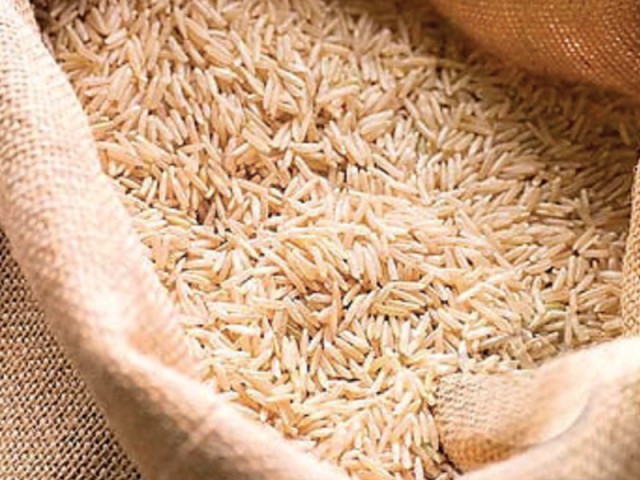REAP rejects allegation of stagnant rice exports
Association claims exports rose 35% year-on-year.

The total rice export has increased from $462 million in 2000-01 to $2.091 billion in 2010-11 registering an increase of 353% or an average increase of 35% per annum, a remarkable growth by any standards, said a spokesperson of the Rice Exporters Association of Pakistan (REAP).
He was reacting to the statement issued by the Basmati Growers Association (BGA) in which they claimed that the basmati rice exports were stagnant for the past years due to restrictions on the mandatory membership of REAP and its monopoly over exports. BGA further said that the basmati exports in the last fiscal year have dropped to 0.7 million tons.
Both associations are conflicted over the export of basmati. REAP is of the view that every rice exporter should be part of the Reap, they are not ready to surrender this condition, whereas BGA wants that permission to be granted to any individual to export basmati rice so as to avoid monopoly. REAP said that via their association it would be easy to track the exporter against whom there is a complaint, however in other cases it would not be possible to track the person and the export orders might hurt.
The actual exports of basmati rice during July 2011 to June 2012 stood at 969,000 tons and not 700,000 tons as reported by the BGA which although is 15% less than the corresponding period last year but has been attained in spite of tough competition with India despite Pakistan facing high-inflation coupled with debilitating energy crisis and crop shortages. Basmati is $200 cheaper in India compared to Pakistan. At present, Pakistan super basmati in the local market is Rs3,650 per 40 kilogramme (kg) which is not viable to export, spokesperson said.
The BGA, in its press release, compared REAP membership conditions with shackles and urged them to be revised to free the rice export market from unnecessary hurdles.
In reply to the BGA, the spokesperson of REAP said that the rules obligates its members to write the registration number on bags being exported, to track any complaints from abroad back to the relevant exporter. Secondly, the member has to abide by the rules and specifications set forth by Reap for admixture level, damaged grains and other fractions to qualify to print ‘Basmati Rice’ on their bags. “If these are the chains which BGA wants to break than we are afraid they want to go back to the era of 90s when there was no Quality Review Committee (QRC); when blending of rice was the order of the day and Pakistani basmati had lost its identity because of the lack of quality control measures,” he said.
It is only after the membership terms and conditions of REAP and pre-shipment inspection by the QRC, developed primarily for European Union and later implemented by Ministry of Commerce, the basmati enjoys success in the international markets, spokesperson said.
Published in The Express Tribune, August 5th, 2012.



















COMMENTS
Comments are moderated and generally will be posted if they are on-topic and not abusive.
For more information, please see our Comments FAQ